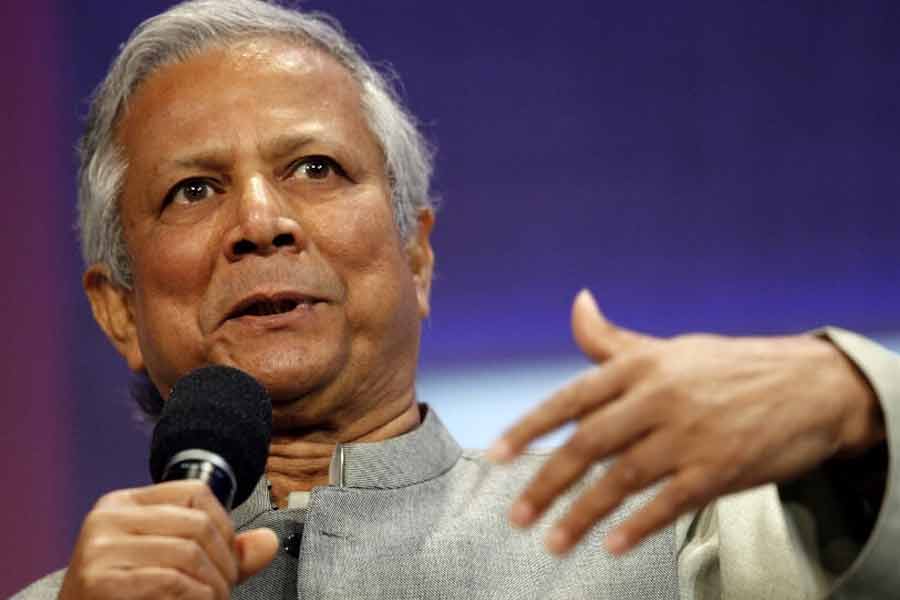Muhammad Yunus, head of the interim government in Bangladesh, on Friday told Prime Minister Narendra Modi that the reports of attacks on minorities in his country had been exaggerated and invited Indian journalists to come and report on the subject from the ground.
There was no reference in either country’s readout to former Bangladesh Prime Minister Sheikh Hasina, cases against whom are mounting amid talk of a possible demand for her extradition.
Mohammad Touhid Hossain, foreign adviser to the interim government, was quoted by Reuters on Thursday as saying that if the home and law ministries so decided, Bangladesh might have to request Hasina’s return and that this could put India in a spot.
India’s external affairs ministry sidestepped questions on whether Bangladesh had made an extradition request, with spokesperson Randhir Jaiswal terming it
a “hypothetical question”.
During a phone conversation that India said was initiated by Yunus, who holds the designation of chief adviser to the interim government in Dhaka, Modi had raised the issue of minorities.
The Prime Minister was the first to break the news of the conversation with a post on X.
“Received a telephone call from Professor Muhammad Yunus, @ChiefAdviserGoB. Exchanged views on the prevailing situation. Reiterated India’s support for a democratic, stable, peaceful and progressive Bangladesh. He assured protection, safety and security of Hindus and all minorities in Bangladesh,” Modi posted.
The office of the chief adviser later posted a series of messages on X on the conversation, including India’s concern over the reports of attacks on minorities in Bangladesh.
“The Chief Adviser has told Prime Minister Narendra Modi that his government is committed to safeguarding every citizen of the country including the minorities when the Indian Prime Minister raised the issue of the protection of the minorities,” it said.
It added that “Professor Muhammad Yunus said that the reports of attacks on the minorities have been exaggerated and he is inviting Indian journalists to visit Bangladesh and report from the ground on the issues of the minority protection”.
India had been circumspect at first while commenting on the reported attacks on minorities, primarily because of the difficulty in ascertaining whether they were being targeted specifically for their faith or had become collateral damage owing to their perceived preference for the Awami League. However, concern about the situation has mounted in the last few days.
While Modi raised the matter twice publicly – first in his congratulatory message to Yunus last week and again in his Independence Day address on Thursday – the RSS, BJP, Congress, Shiv Sena (UBT) and the AIMIM have all voiced concern.
Earlier, in the first statement on the situation in Bangladesh, external affairs minister S. Jaishankar had acknowledged the efforts being made by various groups to protect minorities.
Subsequently, his ministry said that it was the Bangladesh government’s responsibility to ensure the security of minorities.
Yunus told Modi that his government was committed to making the entire state apparatus fully functional and effective, and to protecting the human rights of every citizen. He accepted India’s invitation to the third Voice of the Global South Summit, to be hosted virtually on Saturday.
Earlier, Jaiswal confirmed that normal trade had resumed between the two countries. But he refused to reveal Hasina’s future plans, her status in India, or how long New Delhi could afford to let her stay without jeopardising ties with the new ruling dispensation in Dhaka.











